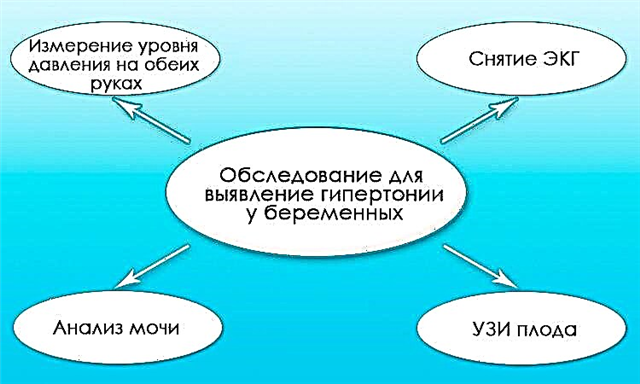Green tea is known for its health benefits. Tea drinking is a ritual in many cultures. But there are also contraindications for drinking this drink. Quite often, the question "does green tea raise or lower blood pressure?" And it is justified, since not many people know that there is caffeine in the green and black varieties. Therefore, this drink can increase blood pressure, and hypertensive patients need to drink it carefully. The effect of green tea on blood pressure has been studied well enough by researchers to draw definite conclusions.
 For people who have low blood pressure, doctors often recommend drinking green tea with lemon and sugar. After such a drink, the indicators become higher. All this is due to the presence in its composition of substances such as caffeine and tannin. Thanks to them, blood circulation increases, the tone of the vascular walls increases. If the tea is also sweet, then glucose invigorates the brain. Together, all these properties help the hypotensive feel much better, which cannot be said about hypertensive patients.
For people who have low blood pressure, doctors often recommend drinking green tea with lemon and sugar. After such a drink, the indicators become higher. All this is due to the presence in its composition of substances such as caffeine and tannin. Thanks to them, blood circulation increases, the tone of the vascular walls increases. If the tea is also sweet, then glucose invigorates the brain. Together, all these properties help the hypotensive feel much better, which cannot be said about hypertensive patients.
But the effect of green tea on performance is short-lived. The body quickly removes it naturally.
Positive properties of this drink:
- kakhetin, which is contained in it, has an antioxidant effect, moreover, it strengthens blood vessels;
- tannin acts on the body's immune system, strengthening it, especially by stimulating resistance to infections;
- green tea also contains a lot of vitamin C.
Of course, every drink, even the most harmless at first glance, can harm the body if drunk in excessive quantities. Green tea is one of those. Therefore, if you use it a lot, then a rapid heartbeat, sleep disturbances, and high blood pressure may appear. Varicose veins of the extremities can also develop. But can green tea be used for high blood pressure?
An increase in the tonometer readings is caused by alkaloids. It is these substances that are simple caffeine. In this case, it has different components. These are xanthine, nofilin, etc. All of them act on the body in such a way that the level of blood pressure rises. In some cases of abuse of green tea, chronic pathologies, including hypertension, are exacerbated.
Green tea increases blood pressure, but at the same time, this drink can improve the patency of the arteries of the coronary and renal types.
Impact of the drink
Although it is noted that it contains caffeine, not everyone has an increase in blood pressure after drinking tea. Everyone's reactions to alkaloids can be different. It all depends on the individuality of the structure of the walls of blood vessels, namely, on the number of their receptors. Some people's receptors are more influenced by cakhetins, while others are more influenced by caffeine.
Does green tea raise or lower blood pressure? Scientists have found that there are much more people susceptible to Kakhetian. Consequently, there are fewer of those whose index rises after drinking tea. In order to determine how green tea affects blood pressure, you should measure it before drinking tea, but you should not be nervous before that. A person should be calm, which means that it should not be after physical exertion, walking, and also not after eating.
Further indicators are measured, and it is better to write them down. After that, you need to drink a cup of green tea, only it should be without any additions. It is better that there is no honey, sugar, and not jam the drink with sweets.
You need to wait 15 minutes and check your blood pressure again. But during the waiting period, you should also not be too active, it is better to sit quietly. The results are compared. And after that, you can evaluate: green tea increases blood pressure, or reduces blood pressure.
If the blood pressure has increased by no more than 10-15 units of mm Hg. Art., then there is nothing to worry about. This means that the body normally accepts the alkaloids contained in green tea.
 And if, after drinking tea, a person's indicators increased by more than 20 units, then this drink should be taken more seriously. In a healthy person, blood pressure readings return to normal very quickly. The same cannot be said about hypertensive patients, for whom excessive consumption of tea can negatively affect health.
And if, after drinking tea, a person's indicators increased by more than 20 units, then this drink should be taken more seriously. In a healthy person, blood pressure readings return to normal very quickly. The same cannot be said about hypertensive patients, for whom excessive consumption of tea can negatively affect health.
Rules for the use of a drink for hypertensive patients
Doctors note that hypertensive patients need to consume about 1.3 liters of fluid per day. But it is important to take into account also soups of liquid consistency, juices. Hypertensive patients are not recommended to drink more than 2 cups of tea per day.
Many people know that bergamot tends to lower blood pressure, but in commercial tea, the taste of bergamot is achieved due to the aromas in the composition. Therefore, do not expect that the pressure will drop due to this ingredient.
It is also recommended to buy only large leaf tea, and rinse the leaves in warm water before drinking. Thus, some alkaloids are already neutralized. Also, the effect of caffeine can be mitigated with milk, that is, you can drink tea with it.
Of course, if a person has hypertension, and at the moment the pressure indicators are increased, then it is better not to drink tea. This can be detrimental to the general condition. Especially at night, you should not drink the drink, as insomnia and excessive excitability may occur. At the same time, hypotensive patients with low blood pressure need exactly a cup of strong drink with sugar or honey.
How to brew?
In order for the drink to be tasty and healthy, you need to brew it for a certain amount of time. If this time is less than 3 minutes, then the pressure increase will be negligible. If this time lasts 4-10 minutes, then from such a drink the pressure can increase by more than 20 mm Hg. Art. It is very dangerous for hypertensive patients at stages 2 and 3 of the disease.
Tea that has been infused for more than 10 minutes is generally not recommended to be consumed. It no longer contains useful trace elements and vitamins, but there is a lot of caffeine. Therefore, if a person finishes a drink brewed in the morning, then there will be no benefit from it.
Scientists have shown that 2-3 cups of the drink throughout the day, brewed in less than 3 minutes, will help keep blood pressure readings normal.
Tea with lemon
Hot green tea with lemon is a pleasant and healthy drink. It is one of the traditional medicines for hypertension. It is effective to add both lemon pulp and zest. Lean tea increases blood pressure, so it shouldn't be strong.
Everything is explained by the properties of the drink to strengthen blood vessels (in moderation). Lemon is also very rich in vitamins and minerals. These are vitamins C, P, D, A, group B (1, 2, 5, 6, 9), and also fluorine, phosphorus, magnesium, sodium, potassium. In view of this, lemon also improves vascular health. Such a composition of substances will help to reduce the amount of cholesterol, reduce the level of blood viscosity. These properties will help lower blood pressure, as this improves the functioning of the cardiovascular system. In addition, lemon tea enhances the body's defenses.
Strong tea
 Very strong green tea is contraindicated for hypertension. In a single case, it is recommended for hypotensive patients to improve performance. All useful trace elements of tea can be obtained only if it is brewed correctly. A strong drink can have the opposite effect on the cardiovascular system. It thinns blood vessels and makes them weaker.
Very strong green tea is contraindicated for hypertension. In a single case, it is recommended for hypotensive patients to improve performance. All useful trace elements of tea can be obtained only if it is brewed correctly. A strong drink can have the opposite effect on the cardiovascular system. It thinns blood vessels and makes them weaker.
Does strong green tea raise or lower blood pressure? A large amount of caffeine, which the body receives at a time, will increase the rate even in a person without pathologies. As a result, he may experience headaches and other symptoms. Eye pressure will also increase. This is dangerous for those with a history of glaucoma.
Do not forget that green tea is a diuretic drink, and if its concentration is very high, then it will remove too much fluid. This is fraught with an increase in the viscosity of the blood and it will be difficult for the heart to pump it.
Frequent drinking of strong green tea can cause persistent headaches due to hypoxia. Diseases such as arthritis and gout are also exacerbated.
Green tea for hypertension is a healthy drink if you brew it correctly and take care of your health. Despite how it affects the body, hypertensive patients can also use it, only in moderation. Does green tea raise or lower blood pressure? It can be concluded that everything depends on the individual characteristics of the organism. It is better to independently check the body's susceptibility to this drink.
Can I drink green tea for hypertension? - The answer from the researchers is positive. In everything you need to know when to stop and listen to your body.



